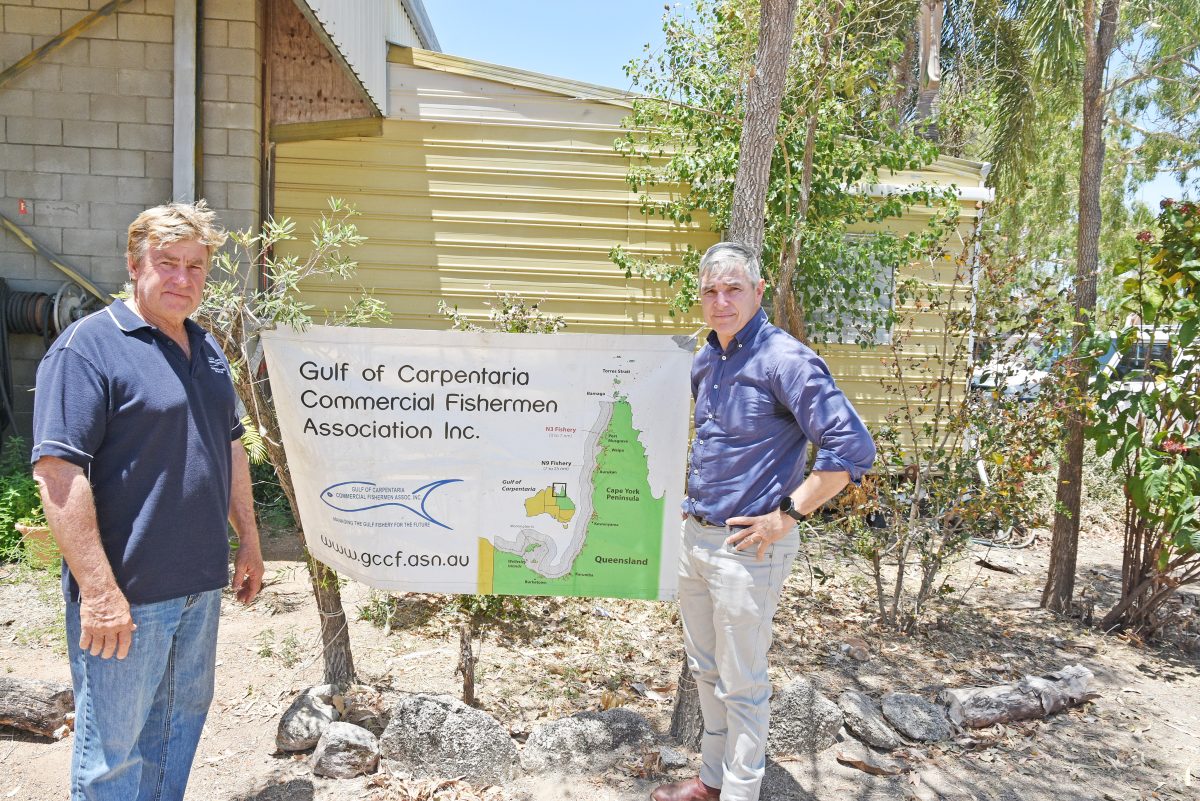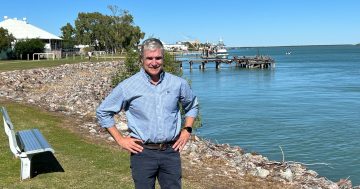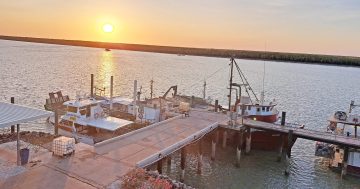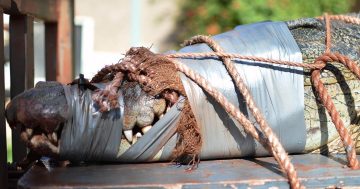
David Wren, the chair of the Gulf of Carpentaria Commercial Fishermen Association, and local MP Robbie Katter in Karumba last Thursday.
SINCE when did overseas interest groups start dictating to our governments on how to run our country?
That’s exactly what is happening in the case of these proposed net-free zones in the Gulf of Carpentaria.
The idea didn’t come from Fisheries Queensland or any other government body, it came from UNESCO.
While all Australians can see the merit in protecting the Great Barrier Reef as both a World Heritage site and as an economic driver through tourism, there appears to be very little scientific evidence that suggests that commercial fishing in the Gulf has an impact on the Reef.
Now, the state government, having already made a promise to UNESCO that it would meet its demands, has moved the goal posts, claiming that the proposed net-free zones are about protecting threatened species in the Gulf.
Yet they can provide no evidence that commercial fishermen are killing or having a major impact on our threatened species.
Even the federal government’s most trusted science agency, the CSIRO, says that commercial fishing is having a negligible impact on species such as the sawfish.
That’s because the CSIRO has put in the work to collect the data and worked with the fishing industry to understand how it interacts with those species.
And while there is no doubt that there is an interaction between nets and sawfish, spear-toothed shark and other threatened species, the fishermen say that it’s minimal and very rarely results in casualties.
Fisheries Queensland can’t provide any evidence to suggest otherwise, which demonstrates that these proposed closures are about politics, rather than conservation.
That’s unacceptable.
Last week, I sat in a room with 50 fishermen from the Gulf, all small-time operators who operate within the law in what is a highly regulated industry.
It was quite sad to see these business owners fight for their lives when there is no evidence of wrongdoing.
Fishing for a living is hard work, but can be rewarding if conditions are in your favour.
Queenslanders see the benefit of that hard work when we go to a restaurant, fish and chip shop, or market to buy some of the best wild-caught seafood in the world.
I’m not sure why the Queensland government would want to take that away and replace it with fish caught from places like Indonesia, where there is no regulation and the quality of seafood isn’t anywhere near the same.
It’s time for the government to stand up to UNESCO and back its people.





